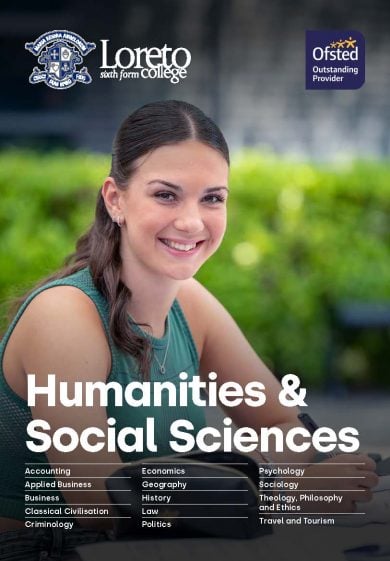
A Level Psychology
- Are you fascinated by how the human mind works and how the brain affects behaviour?
- Do you often wonder why people behave in the way they do?
If so, Psychology is the subject for you!
As a Psychology student, you will explore how memory works, psychological disorders and attachment behaviour. You will also learn how the brain works, how to design and conduct psychological
research and analyse data as well as learning why people offend and the reasons and process for the maintenance and breakdown of relationships.
Exam board: AQA
Assessment
PAPER 1 – INTRODUCTORY TOPICS IN PSYCHOLOGY
Percentage of total marks: 33.33%
Method of assessment: Written exam 2 hours
Topics covered are social influence, memory, attachment and psychopathology.
PAPER 2 – PSYCHOLOGY IN CONTEXT
Percentage of total marks: 33.33%
Method of assessment: Written exam 2 hours
Topics covered are approaches in psychology, biopsychology and research methods.
PAPER 3 – ISSUES AND OPTIONS IN PSYCHOLOGY
Percentage of total marks: 33.33%
Method of assessment: Written exam 2 hours
Topics covered are issues and debates, relationships, schizophrenia and forensic psychology.
Skills
Evaluation skills, research skills, numeracy skills, extended writing, application of knowledge skills, organisation skills, revision skills and time management
Careers/Destinations
As Psychology is the study of the mind and behaviour it can lead to many careers that require knowledge of how people think and react. Such as clinical psychology, forensic psychology, health psychology, sports psychology, physiotherapy, social work, teaching, advertising, marketing, nursing, medicine, criminology, neuroscience, occupational psychology and management.
Psychology
What is Psychology?
Psychology is the scientific study of the human mind and behaviour. This means that psychology tries to explain how the human mind works and why people act in the way they do. Psychologists carry out research studies and formulate theories to help to explain behaviour.
What do you study in Psychology A Level?
In the first-year topics include how memory works, why people get psychological disorders such as depression, or how to treat a phobia, and attachment behaviour and how this affects later child and adult development. Other topics studied in the first year are how the brain works and how to design and conduct psychological
research and analyse data. Approaches in psychology are the main explanations in psychology to explain behaviour and these are taught throughout the course. In the second year of the course, other topics studied are the complex psychological disorder schizophrenia, explanations for why people offend and the reasons
and process for the maintenance and breakdown of relationships.
Which other A Level subjects go well with Psychology A Level?
Psychology is a social science and therefore goes well with all subjects. Due to the scientific aspects of the course it works well with science subjects and a very common combination with Biology and Chemistry. It also goes well with other social sciences such as Sociology as the structure of the two subjects is very similar, due to them both having main theories and using research methods to support the topic areas. However, any of the social sciences such as Law, Criminology, Business Studies and Health and Social Care work well with psychology. If a student has an interest in sports,
psychology works well with that too. Psychology also combines well
with art subjects due to the significant amount of extended writing
required. Psychology can also help to understand and interpret
aspects of English Literature, Classical Civilisation and Art.
What are the entry requirements for Psychology A Level?
To study Psychology A level at Loreto college you need to meet the college entry requirements to study A level. There are no specific entry requirements for Psychology. However, the GCSE’s that will best support you in studying Psychology are English, Maths and Science.
How am I assessed in Psychology?
In Psychology you will have to write extended answers where you need to outline and evaluate psychological research so having good English skills will help you with this. There is also a significant part of the course that uses biology to explain human behaviour so science GCSE will help with this. 10% of the Psychology exam will be
questions based in maths and the topic of research methods has a mathematical content so having maths GCSE will help you with these topics in psychology.
Is there any coursework in Psychology A Level?
There is no coursework in Psychology but there are three exams at the end of the two years. These exams are 2 hours long and the questions range from multiple choice, short answer, applied, extended writing questions and research methods.
What are the class sizes in Psychology A Level?
Psychology is a popular subject and the class sizes are approximately 22 students. This is a very popular department in the College with 1000 students studying psychology A level.
What career can you do with Psychology?
As Psychology helps you to understand human behaviours it is helpful for a whole range of careers. If you go on to study a Psychology degree, there are lots of specific related careers; including Clinical Psychology, Forensic Psychology and Occupational Psychology. If you want further information about these careers, visit the British Psychology Society website. Other careers that Psychology is useful for include: nursing, sports, marketing, management, teaching, police work, social work, recruitment and media and TV.
Do you go on any trips in Psychology?
Each year in Psychology we go on a residential trip to London to attend a psychology conference where a famous psychologist is the main guest speaker; there is also time for sight-seeing, and experiencing a west end show. We also attend a forensic psychology conference where the UK’s lead criminal psychologist
David Wilson presents. Other trips involve visiting universities. The department also invites guest speakers who visit the college to talk about their personal experiences of schizophrenia and offending behaviour. The department hosts an annual event at college to raise awareness on world mental health day. Psychology students also enjoyed a residential trip to Vienna to visit the Sigmund Freud museum.
What support will I get?
The subject is well taught with an outstanding range of resources provided to students to help support their learning. Students are regularly assessed to help enhance their long-term memory of the subject over the two years in preparation for their A level examinations, and there is a homework schedule to enhance this.
Teachers in the department are approachable and make themselves available to offer drop in sessions to help support students with areas of difficulty. The department offers an extra session for upper sixth students and an independent study package to support students to work on to help students improve their grades. Revision and skill targeted support sessions are offered throughout the year.

